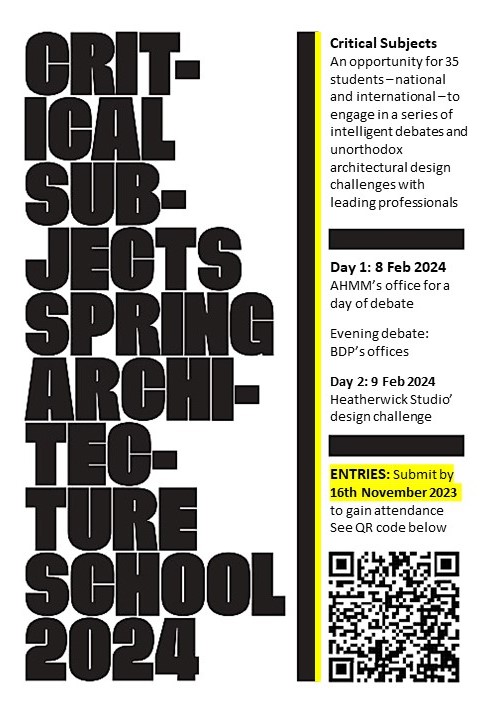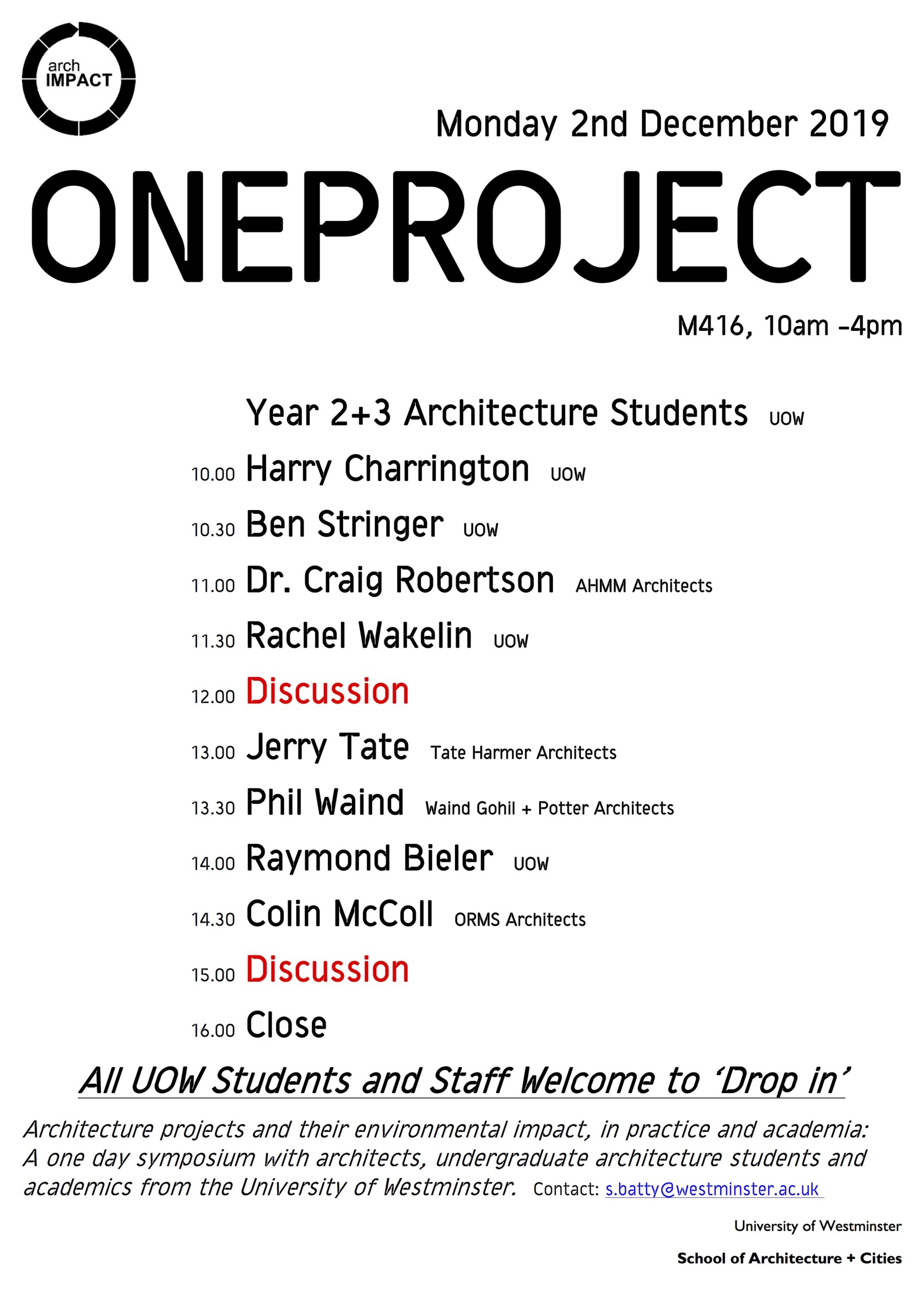To attend, please send your competition submission by 16 November 2023
CRITICAL SUBJECTS: ARCHITECTURE & DESIGN SCHOOL
This event takes place on 8-9th February 2024 in London.
Cost: £20 (students). Includes hostel accommodation for the duration, breakfasts, materials, certificates, networks, tote bag, (potential) prizes, etc.
This short course is for architecture & design students, as well as graduate architects & designers.
See below (and attached poster).
_____________________
COMPETITION
APPLICATIONS OPEN FOR STUDENTS, YOUNG ARCHITECTS & DESIGNERS.
“Critical Subjects: Spring Architecture & Design School” in central London
Entry submissions are due by 16 November 2023
Details on How to Enter, here.
APPLICATIONS FOR ENTRY:
To win a place you need to submit a 2-minute (max) video of architectural critique – to arrive by 16 November – that addresses ONE of the following provocations:
• Should we build on the Greenbelt?
or
• Whatever happened to the Space Age?
or
• We need fewer architects, more builders.
Videos must present a cogent, critical, persuasive argument on one of those topics; whatever side you take. Submissions will be judged by a respected, international jury of architects, academics and designers.*
Send ENTRIES to: futurecitiesproject@gmail.com
Details: http://futurecities.org.uk/2023/08/17/how-to-submit-your-entry/
Costs for the 2-day school: £27 total (£20 student concessionary rate) that includes the 2-day school, hostel accommodation and breakfast, materials, certificates and (potential) prizes.
Day 1 (8th February 2024): A day of debates at AHMM offices
Evening debate: “Global Futures” at BDP offices
Day 2 (9th February 2024): A day of making at Heatherwick Studio
Full details here: http://futurecities.org.uk/critical-subjects/
Please forward to your students and network. It would be appreciated!
*Judges include:
Will Hunter, senior researcher, MIT & founder, London School of Architecture
Glenn Howells, partner, Howells
Andrew Nahum, principal curator of Technology and Engineering, The Science Museum
Alex Lifschutz, director, Lifschutz Davidson Sandilands
Alan Dunlop, director, Alan Dunlop Architect
Simon Allford, PRIBA & founder AHMM
Kim Quazi, director, Arup
Stefanie Schneider, UN Participatory Slum Upgrading Programme
Benjamin Spaeth, professor of Digital Design, Technische Hochschule Lübeck
Zhanet Mishineva, project architect, Clive Chapman Architects
Robert Adam, architect/writer
Azhar Azhar, founder, Azhar Architecture
Darryl Chen, Urban Design lead, Hawkins Brown
Patrik Schumacher, principal, Zaha Hadid Architects
Simhika Rao, associate director, HebHomes, Glasgow
Xing Ruan, dean, School of Design, Shanghai Jiaotong University, China
… additional names on the website











